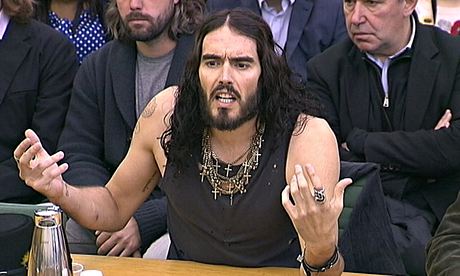
It appears that OCR (an Exam Board operated jointly by Oxford, Cambridge and the RCA) have just announced a new English A-level programme, which has been developed in conjunction with the English Media Centre.
Let's just take a moment to consider the level of subject expertise represented by these four groups....
Ok - to continue.
According to OCR:
The range of texts to be studied is the most diverse yet for any English A Level. It ranges from classics such as the poems of Emily Dickinson and William Blake to memoirs like Twelve Years a Slave and contemporary works including poetry from Jacob Sam-La Rose, Jez Butterworth's stage play Jerusalem, fiction by Jhumpa Lahiri and Russell Brand's evidence on drugs policy presented to the House of Commons.
Personally, I think this all sounds rather exciting. The texts are certainly diverse, and allow for an interdisciplinarity (combining the study of culture, literature and language in ways which border some aspects of sociology) which many of us who work in the field believe to be essential to keep the subject from calcifying into an anachronistic fossil of academia.
Rather predictably then, the Department for Education has reacted like Matthew Arnold reviewing a Banksy exhibition. "Schools should be aware" they have apparently commented, "that if they offer this rubbish in place of a proper A-level, then pupils may not get into good universities."
I am not entirely sure why the DfE are calling 'rubbish' a curriculum which seems to me a perfect response to their own published guidelines on A-level studies in English.
Except... no, scrap that. I am sure.
Look at the names mentioned:
Emily Dickinson: A female poet whose works are now heralded as some of the greatest in American literary history, but who spent her writing 'career' in obscurity largely because of gender inequalities.
William Blake: A poet who sits outside of any established systems - who created his own religion, his own mythology, and who railed against the inhumanity of industrialisation.
Twelve Years a Slave: The story of a slave - a victim of an officially sanctioned trade in human lives which has its origins in this country.
Jacob Sam-La Rose: A black poet and educationalist who champions the literacy of youth culture.
Jez Butterworth's play Jerusalem: Which mocks the ideals of English traditional values by contrasting them with contemporary social issues.
Jhumpa Lahiri: A Bengali writer from America who writes about Indian life.
Russell Brand: A comedian and an increasingly furious anti-establishment figure, who irritates people by being irritating - and irritates them more by a surprisingly eloquent and astute social critic at the same time.
In other words - all of the names chosen seem to be topics which are, in one form or another, anti-establishment. They are all texts which invite students to explore criticisms of the establishment, criticisms of England's (ig)noble history and parochial heritage-mongering and notions of cultural exclusivity.
No wonder the DfE are so incensed. This goes against everything they have been working for: An education system in which those who cannot afford a better education are encouraged to study only texts which (symbolically, if not literally) support the notion of English establishment.
The last thing they want is young people learning to question the social structures which the DfE are building to protect their own privilege.

Comments
Post a Comment